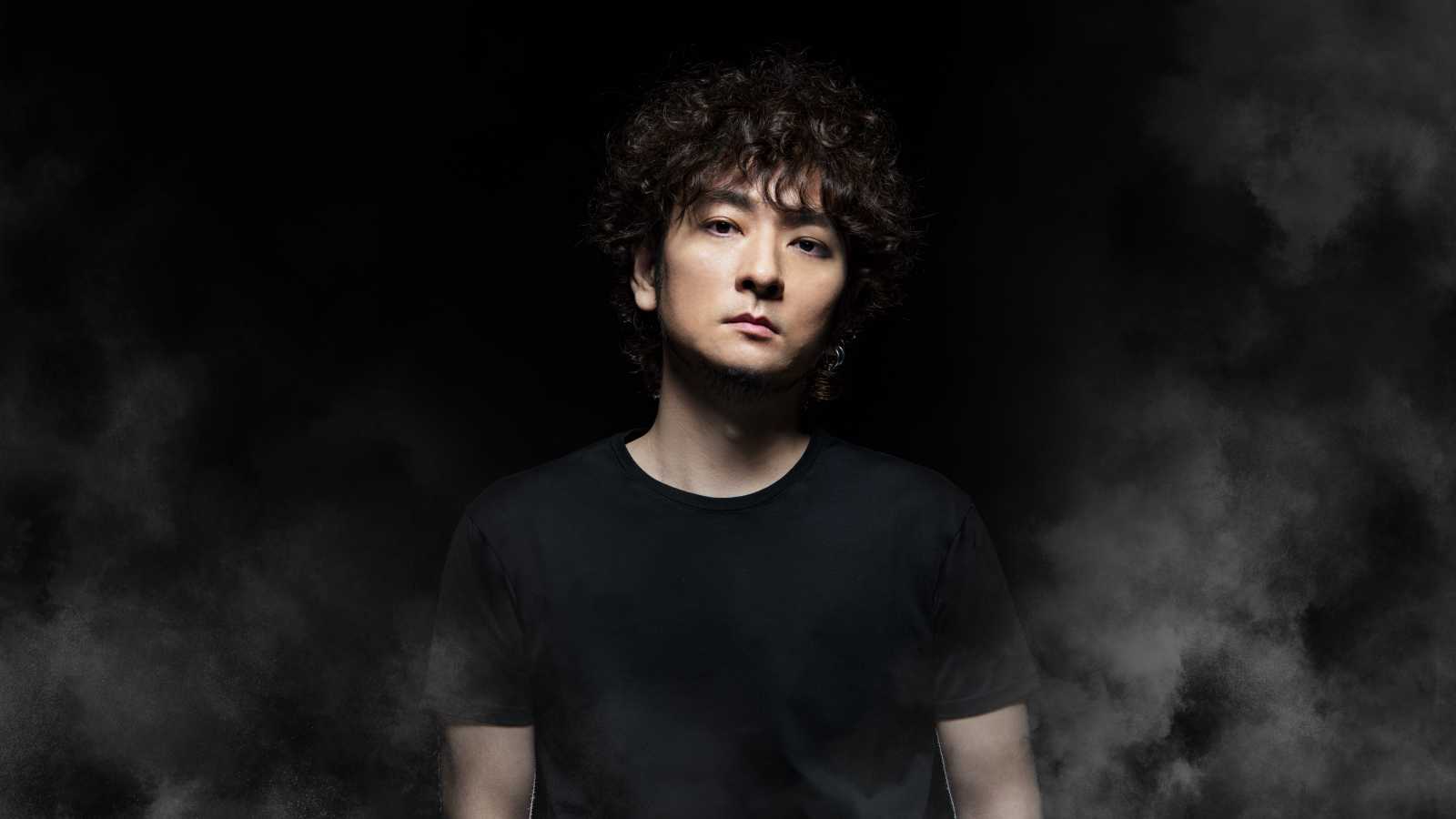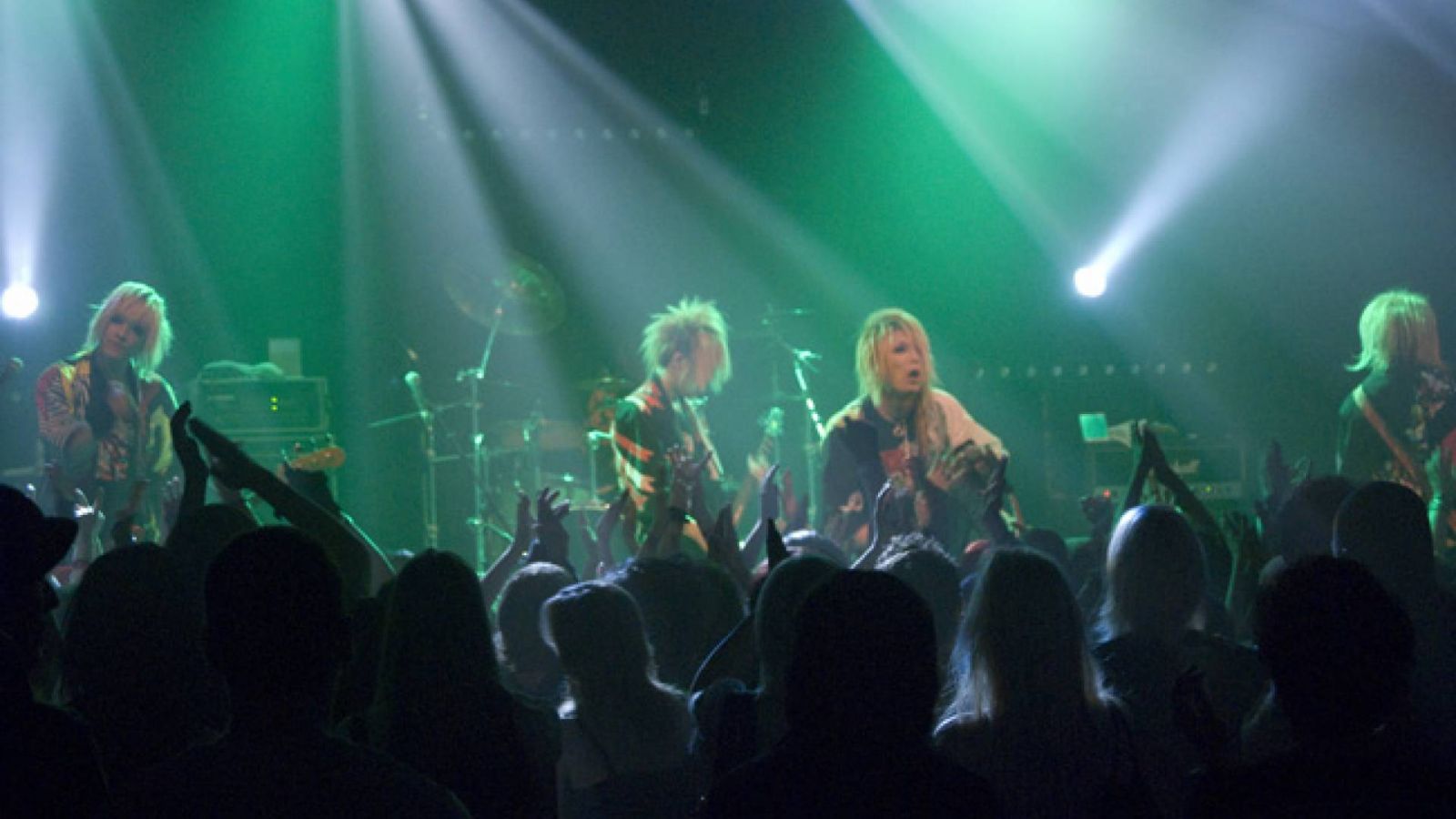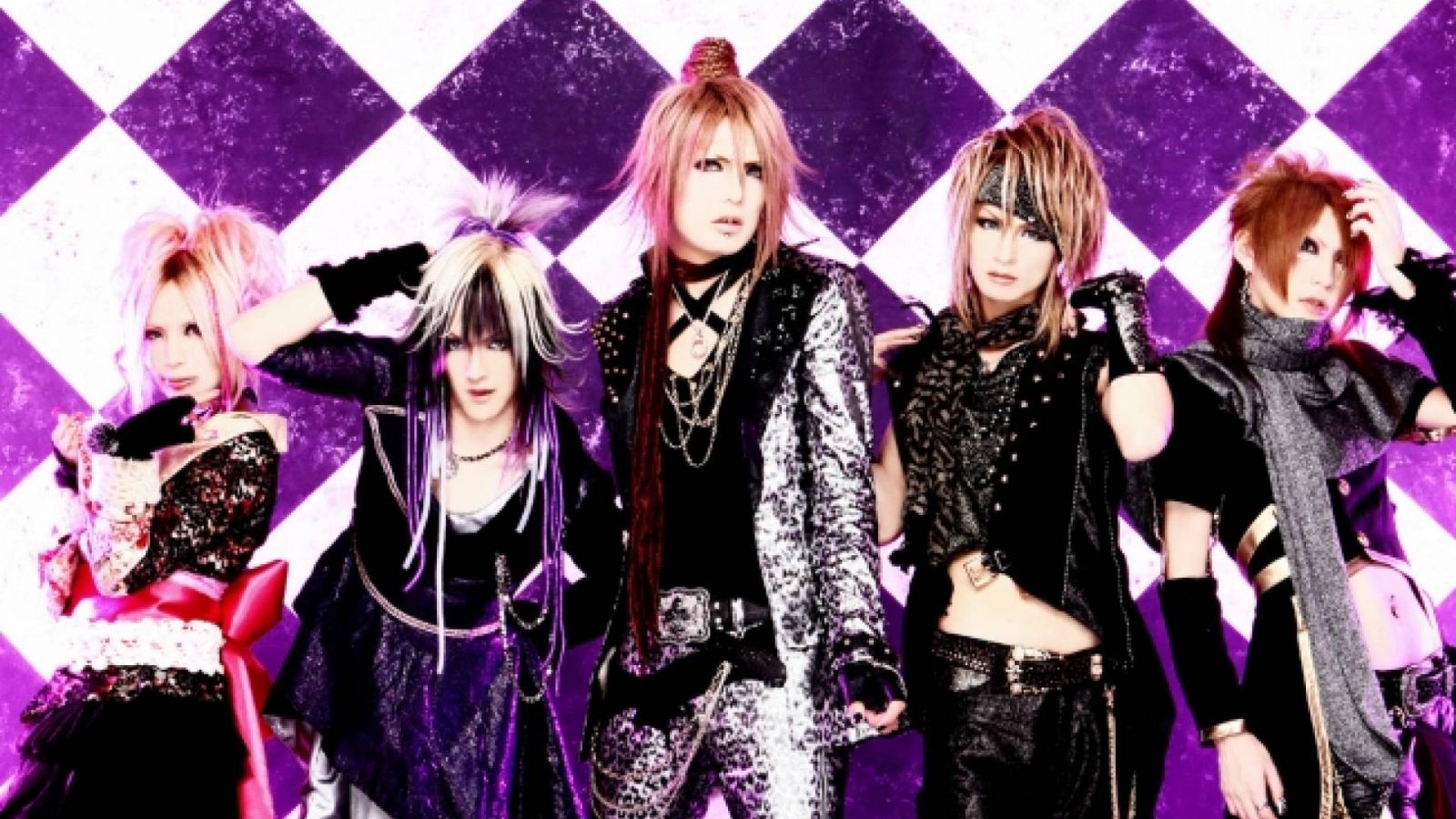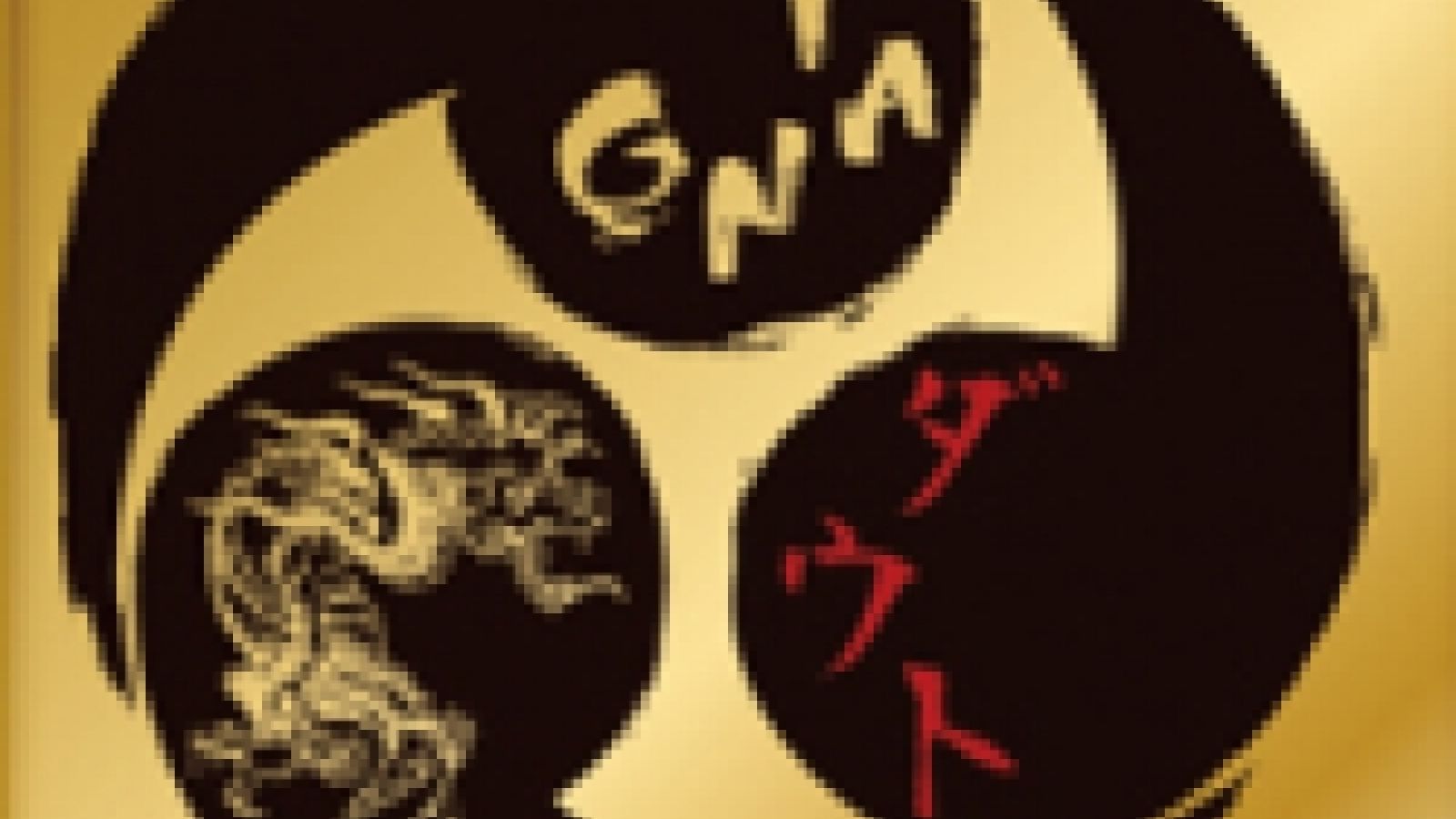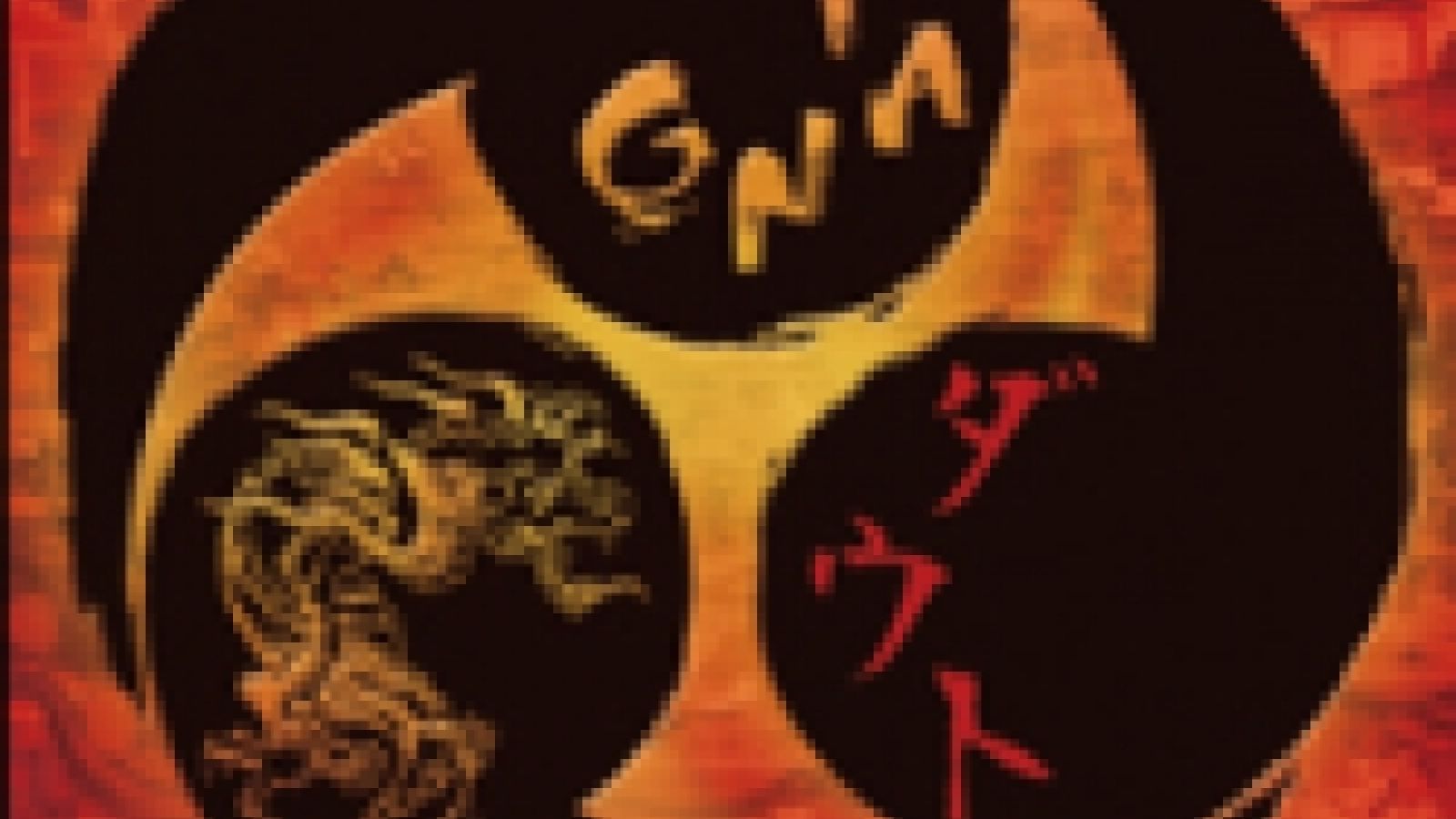D=OUT's first album covers a broad spectrum, from pop and rock to classical and dance music.
ZIPANG, the latest release of D=OUT (pronounced 'Dauto'), arrives right on the heels of their mini-album, which went on sale this spring. Prior to that they'd had a release every few months, establishing them as a band that's really produced a lot in their short existence of less than two years. ZIPANG is special not only because it's the band's first album, but it's also their first European release. Though D=OUT hasn't played in Europe yet, hopefully sales of this album will show them they have a fan base there too.
After the album opener, a brief instrumental piece with clapping beats and ominous bass, we get to ZIPANG. The title track is a fun hodgepodge of screaming guitars, electronic noises and surprisingly, an acoustic guitar. Kouki's vocals are lovely as usual, and full of hostility in the chorus, contrasting with the unexpected acoustic.
The next couple of tracks showcase the band's talent for making outstanding choruses. Bankoku dai Tokyo is also notable because Ibuki and Hikaru really capitalized on their twin guitar sound, the melodies zipping in and out unpredictably, giving the song texture. Track four, Shangri La, again has an exceptional refrain with its fast disco beat, gamboling bass and enchanting vocal line. In the verses, Kouki also does some hoarse yelling vocals that scoop up into falsetto.
Akai kasa to anata is a lovely ballad with acoustic guitar and drifting melodies. The pace actually feels too slow, but the song's focus is Kouki's lyrics, which tell a story, so the slow pace maintains the suspense from one word to the next. Like their earlier ballad, Harukaze Shalala, the refrain is utterly mesmerizing, luring the listener into a celestial world. Reika's bass drifts fairly high in the refrain, adding to the up-in-the-clouds feel of the piece. The sixth track, Toge, is a jazz number, unusual for its waltz-like interlude that features an accordion. The combination of the acoustic guitar with the rapidly pounded piano at the end makes for an imaginative finish.
Happy no kazoe uta stands out with its lazy rhythm and ethnic melodies in the verses, though surprisingly the chorus is a bit lackluster. Track eight, D=OUT's version of Natsu matsuri, is another big number for its danceable beat and racing chorus; you'll be humming for days. The original version came from Jitterin' Jinn, and for anyone who's spent time in Japan during the summer, the melodies will be familiar. It seems anything that follows this extraordinary track would be a let down, and that seems to be the case for Doukoku nite shigure - until you reach the refrain with its rapid dance beat, wacky synths and gorgeous vocal melody. The second verse also offers some unusual vocals and a powered-up drum duet, sans guitars and bass.
The next two are filler tracks, but if you're a visual kei fan, you'll probably enjoy them. The first has an intro with someone speaking in English, the word "America" is decipherable but the rest is muddy. The focus of GOLDEN MAN is atmosphere as opposed to melody, and it creates a fast paced world with a sprinting drum and urgent vocals, no doubt a very exciting song to experience live. At less than two minutes, it even seems to end prematurely. Kochira heisei, naru razz sha yori is another fun high tempo number with a jazz theme running throughout, though with a much heavier rock feel than Toge. The mediocre refrain evolves into something great when Minase's drums change at the end.
Thankfully, the lazy paced Crawl is next. With its mellow atmosphere colored by melancholia, it's another beautiful, captivating rock ballad. The intro's angsty guitars contrast perfectly with the sweet harp-like piano. Both soothing and sad, it offers floating melodies that create a cloudy world, darker than the one in Akai kasa to anata.
ZIPANG is an album that's easy to love. Some of their more danceable numbers, like Doukoku nite shigure, Shangri La or the classic Natsu matsuri, will appeal to pop and rock fans who don't necessarily like visual kei. The ballads are beautiful no matter what your style. If you've been wondering about D=OUT, this release is representative of their best work, and will leave you with an eagerness to hear what they'll come out with next.
![HYDE [INSIDE] LIVE 2024 -EXTRA- at Makuhari Messe](https://www.jame-world.com/media/image/2024-11/_16-9_14951.jpg)

